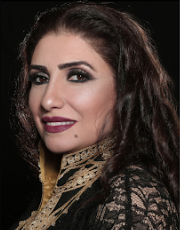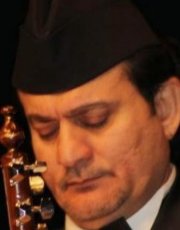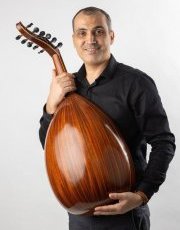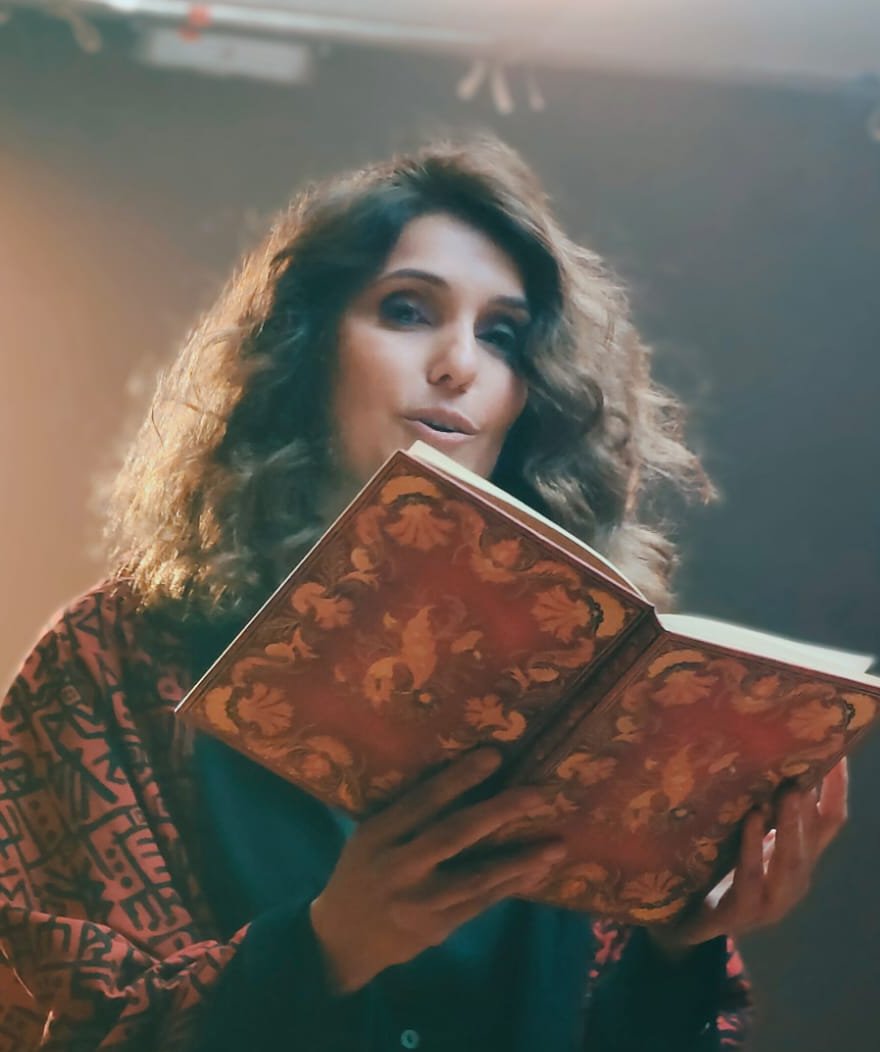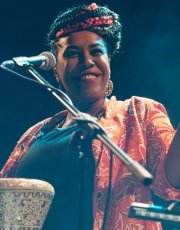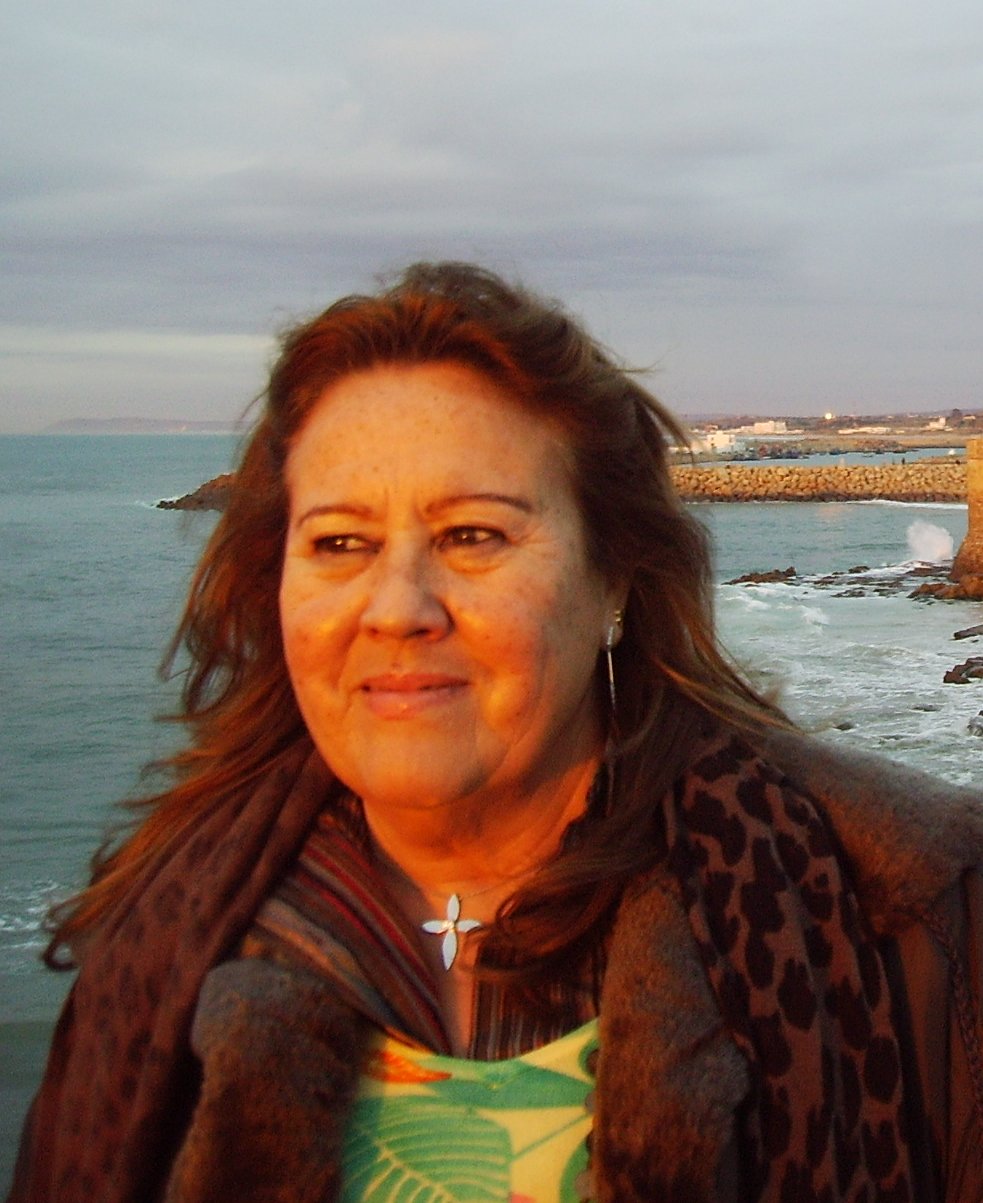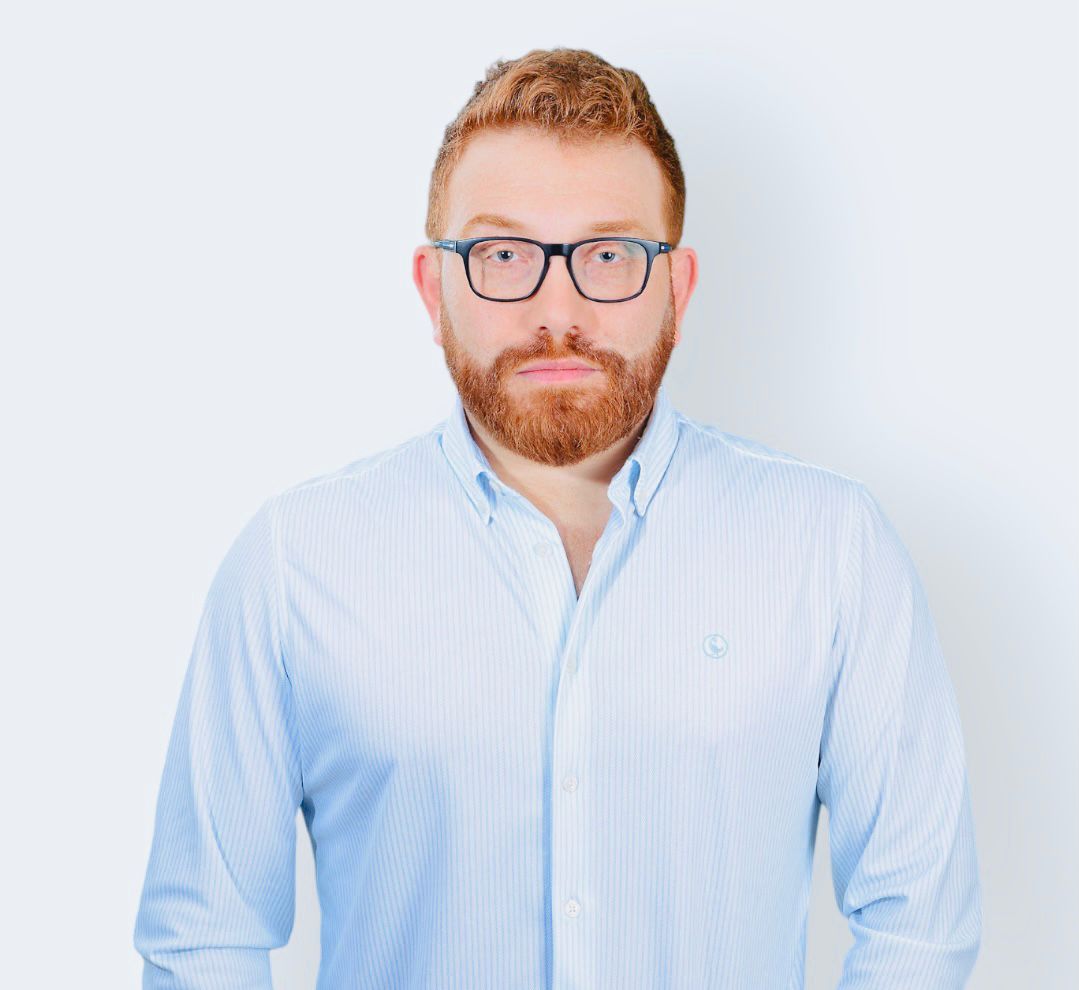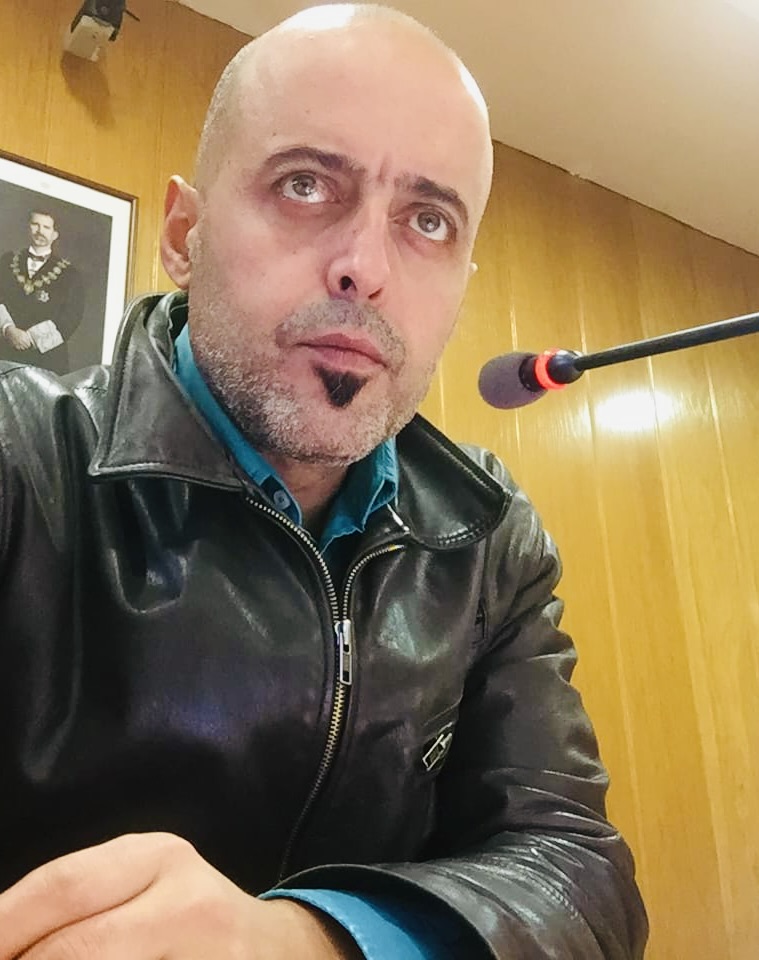Online Training
Online Master in Arab World Singing
- Schedule: Weekend (Friday and Saturday)
- Start date: 7/04/2023 to 2/09/2023
A journey into the musics of the Arab World that will transform your musical vision and performance
Invest in your artistic growth
Objectives
This Master aims to help you grow as an artist through an exploration of the musics of the Arab world, by developing and perfecting your vocal and musical style, and by acquiring new resources that will allow you to build your own creative, musical language.
To achieve this:
- You will hone your understanding of the styles and performance of the musics of the Arab world.
- You will expand your musical vision and broaden your sonic horizons by exploring them in-depth.
- You will build musical bridges that will help transform you into a unique and memorable artist.
- You will learn methodologies and ways of working that you can apply to all musical styles and at all levels of expertise.
Advantages of this Master
- STUDY FROM ANYWHERE.
Study this Master from wherever you are in the world, on your PC, tablet, or smartphone.
- MULTI-LANGUAGE
Available in Arabic, Spanish and English. Each instructor will teach their class in their native language, with a translation into English and Spanish. This ensures that the information comes from the most authentic source, exactly as it is expressed by each instructor, while giving you the opportunity to expose yourself to the Arabic language and its sounds.
- LEARN WITH THE BEST METHODOLOGY
A unique and innovative methodology that ensures organized, straightforward, and efficient learning, combining oral tradition + functional vocal technique + musical pedagogy + culture and anthropology.
- GUIDANCE AND SUPPORT
Weekly group mentoring, support, and progress-monitoring sessions to help you overcome challenges and get the most out of this Master.
- CONNECT
Contact, connect with and learn from expert instructors in Arab world studies, conveniently brought together in one single program.
- COMMUNITY
Grow together with singers from all over the world with similar experiences and interests, in a safe and creative environment with a support group and camaraderie.
- PIONEERING, ONE-OF-A-KIND PROGRAM
Theory and practical lessons. SUBJECT AREAS: Singing and the voice – Vocal and musical styles - Culture – Fusion and creation. Access to extra resources.
- MUSICAL IMMERSION
For 5 months, you will take part in a vocal, musical, and personal journey that will transform your view of music and of the world.
- HOLISITIC APPROACH
It is important to focus on our personal growth and our contribution to the world as artists, as well as singing and the music.
- EXCLUSIVE - BE PART OF THE VERY FIRST EDITION OF THIS MASTER!
Course content
Course content overview
After several years of design and preparation, the Arab World Singing Master, created by Irene Shams, will launch in 2023. This pioneering new Master, the first of its kind worldwide, integrates the oral traditions of the Arab world with the latest musical and vocal pedagogies and science.
This Master’s comprehensive program combines theory and musical-cultural immersion with a major focus on practice sessions. These sessions are grounded in the Cantantes PRO Method, which is designed to help singers explore their maximum vocal, musical, creative, and personal potential.
The program includes over 130 hours of live teaching sessions, recorded lectures and videos, course materials, guidance and support, and access to an online community.
+130 hours of live teaching sessions
+ 20 hours of recorded content
Guidance and support
Online community
Course materials
5 months of musical immersion
Course syllabus
1. Theory and practical lessons
You will receive theory and practical lessons taught by Irene Shams, which will give you a solid foundation in the subject areas of Musics of the Arab World, Singing, and Voice and Music Pedagogy. Includes learning materials, and recorded lectures and videos.
- Music and culture.
- Music components.
- Introduction to the musics of the Arab world.
- Rhythm and rhythmic patterns grouped by country and musical style.
- Organology and timbre in the Arab world.
- Melodic and modal systems in the Arab world.
- Musical structure and form in the musics of the Arab world.
- Musical texture in the musics of the Arab world.
- Musical analysis and methodologies.
- Genres, styles, and countries (I). Classical-art music.
- Genres, styles, and countries (II). Traditional-folk music.
- Genres, styles, and countries (III). Urban and popular music.
- Music, sound, and religion
- Contemporary hybridization.
- Compositional, vocal, and stylistic resources.
- Final Project.
- Introduction to singing and the voice.
- Cantantes Pro Method.
- Vocal technique applied to the musics of the Arab world.
- Vocal development methodologies and tools.
- Vocal analysis.
- Singing challenges, repertoire, and practice sessions.
2. Live Masterclasses
22 Masterclasses (44 hours) with world-class instructors where you will work on the repertoire and vocal styles of the different countries of the Arab world, from the oral tradition approach. You will also learn how to hybridize them and integrate them into your own style.
“History of Andalusian classical music”
“Forms, rhythms and modes of Al Ala Andalusian classical music”
“Vocal style and repertoire of Andalusian classical music”
“Songs from the Gharnati repertoire”
“Sana’a so songs of Algeria”
“The Tunisian Maluf: rhythms and modes”
“Music and rhythms of Sudan”
“Muwashahat”
“Oriental classical singing: Egypt, Syria, Lebanon”
“Vocal improvisation”
“Traditional Arab song: from tradition to fusion”
“Qudud and songs of Aleppo”
“Musics of the Great Ladies of Arab Song: Oum Kulzum, Fairuz, Asmahan”
“La ughniya tawila de Oum Kulthum”
“Khaliji and songs of Jordan”
“Al ghina al Sanani and songs of Yemen”
“Songs of the Iraqi Maqam”
“Songs of Iraq and Jordan”
“Revisiting traditional repertoires: hybridization”
“The Iraqi Maqam”
3. Classes and workshops with expert instructors
22 workshops (44 hours) and classes with experts in Arab world musics and culture, where you will hone your performance skills and learn about the anthropological and socio-cultural context of these musics.
“The Maqamat Practice. Golden Era.”
“The Duff technique”
“Rhythms of the Arab world”
“Modern history of the Arab world”
“Culture and society in the Arab world”
“Arab and Andalusian classical poetry and literature”
“Islamic thought and spirituality”
“Working with musics of the Arab world”
“The Arabic Alphabet. Pronunciation, reading, and writing of Fusha Arabic.”
“Introduction to the Arab world”
“Bedouin Nabati poetry”
“Discovering the Arab world through the 5 senses”
4. Live group mentoring sessions
Each week you will have a live session with Irene Shams, dedicated to Q&A, methodology and monitoring your progress. These sessions are designed to offer you all the help and support you need to achieve your goals.
We will answer your questions and hone your vocal style and technique, helping you to integrate what you learn and to overcome challenges.
Also, these sessions are designed to be a space where you can create synergies with other singers and be part of a support group.
Receive your certified diploma
Quality assurance stamp
Receive your certified diploma
Receive your diploma once you successfully complete the Master.

Master Instructors
Partners


Student Feedback

Qanun player
Lene Dalen
«There is a “before” and an “after” Irene. She is unique – active musician, with a deep knowledge of Arab music, a great teacher and also knowledgeable about the dances of the Arab world, so she understands the needs of the dancers. She has opened my ears and made me a much better musician and dancer. Thank you, Irene»
Singer, songwriter and educator
Looping Greis
«Irene is a great voice teacher. She also has a vast and deep musical knowledge. If you add to this a rigorous research on the voice in the various traditions of the world, you get an inexhaustible source of inspiration. For me, as a singer, composer and teacher, Irene’s influence has been transversal.»


Master in Contemporary Arab and Islamic Studies
Javier Lanchetas Sánchez-Guzmán
Javier Lanchetas Sánchez-Guzmán
«This course has helped me delve further into the musics of the Arab world; although I had already performed some pieces and I knew the main ajnas of the Maqamat, after completing this course I have a much broader understanding of other rhythms and musical genres. It’s a much richer and broader musical diversity than I imagined, which inspires me to continue learning about these musics. Shukran!»
Singer, singing teacher, voice physiotherapist
Alexandra Montón
«I felt a bit stuck and Irene brought out in me an energy and a way of working that was completely new to me. Sharing the experience with other people facing the same challenge was both motivational and inspiring, not only as I got to observe how they work, but also because I could see them achieving the goals of the course and making progress as each day went by.
I think you can learn a lot from this group approach, as a singer and as a vocal coach, to develop a different way of working on YOUR goals from a new and, dare I say, wiser and more creative perspective.»


Singer, actress and vocal coach
Leora Glaslow
«Singing is a very peculiar artform where you’re the instrument. It isn’t something exterior or different from you. YOU are the singing. Singing is intrinsically connected to our physical, mental, and emotional state. I believe that singing is spiritual – in the truest and broadest sense of the word. And if you take that as your starting point, you can do anything. I’m saying all of this because I think that Irene also knows and understands this. I believe it’s the main principle that guides everything she does.
Irene Shams helped reignite my passion for this artform, and for the work and routine it requires. She made me think about who I am as a singer and as an artist, and about who I want to become.»
This master is for you
Who is this master ideal for?
“Singers – vocal coaches and singing teachers – composers and instrumentalists”
Singers
This Master is for you if you are a singer who is interested in any of the following:
Oral tradition
- Singers of traditional music who are interested in world music and, specifically, the modal music of the Mediterranean and the Arab world.
Arab world
- Singers who want to familiarize themselves with the sound, aesthetic, and style of the different musics of the Arab world, and to master their idioms and techniques.
Personal style
- Singers who want to develop their own style and enrich their musical language, by gaining new vocal, stylistic, musical, and performance tools.
Potential
- Singers who want to explore their vocal and musical potential, by acquiring effective ways of working and tools for improvement.
Transformation
- Singers who want to transform themselves as artists, by broadening their musical horizons and building new musical bridges.
Vocal coaches and signing teachers
This Master is for you if you are a vocal coach or singing teacher who is interested in any of the following:
Style
- Vocal coaches and singing teachers who want to be able to reproduce different timbres and musical styles.
Vocal analysis
- Vocal coaches and singing teachers who want to delve deeper into vocal analysis and acquire new vocal skills.
Resources
- Vocal coaches and singing teachers who want to expand their repertoire and gain new resources for teaching.
Composers and intrumentalists
This Master is for you if you are a composer or instrumentalist who is interested in the musics of the Arab world and/or looking for resources and inspiration to apply to your vocal repertoires.
IMPORTANT: During this Master the instrument we will use is the VOICE. Except for the workshops on the Duff method, this Master does not cover instrumental techniques.
All your questions answered
Frequently asked questions
The Arab World Singing Master starts on Friday, April 7, 2023, and ends on Saturday, September 2, 2023. It lasts 5 months.
All the live sessions are recorded and uploaded to the platform. If you cannot attend a live session, you will be able to stream it afterwards.
You do not need to speak Arabic to study this Master, although if you are an Arabic speaker – Marhaban!
Pronunciation is a technical aspect that every singer needs to work on. This is why this Master includes 3 sessions specifically focused on pronunciation, phonetics, and reading Fusha Arabic. This way, you will have a solid base to work from and you will be able to read song titles and lyrics.
Additionally, in the Masterclasses you will work on the pronunciation and specific dialects of each case.
With the live sessions (6 hours), recorded lectures and videos, and singing practice, on average you should allow for 10-12 hours a week.
Remember: this is a Master in singing and music! Getting the best results will depend on your commitment to practicing carefully.
In addition to the proposed activities of this course, we will also suggest extra activities, such as watching documentaries, films or concerts, reading articles and books, etc.
Although all of this will require a lot of time, it is essential if you want to have a truly immersive musical and cultural experience!
Yes, places are limited (50).
We want to guide and support you in the best way possible, to give you the opportunity to actively participate in the classes, and to attentively take care of your needs. For this reason, there must be a limit on the number of students enrolled on the Master.
So that you can answer questions such as “Is this Master suitable for me?” or “Am I suitable for this Master?”, we offer an interview to assess whether your needs and goals are aligned with the Master.
The price of the master is €2,300. There is a registration promotion at €1,900 for webinar attendees and another €100 discount for those who pay the master’s degree in a single payment.
You can pay the master in 5 installments of 380€/month.
LEGAL NOTICE: once you have enrolled on the Master and paid the first instalment, you will be contractually obliged to pay the remaining instalments. Breach of contract will result in the loss of your rights and access to the Master, in addition to possible legal action. Under no circumstances will any paid instalments be refunded.
Yes, once you have completed the Master and the proposed activities of the course within the deadline, you will receive a Master completion certificate.
If you do not complete the Master within the deadline or you fail to complete the planned activities of the course, you will receive a Master attendance certificate
En caso de que no termines en el plazo o que no completes las actividades propuestas, recibirás un diploma de asistencia.
The timetable of the live sessions is (UGT +1, Central European Summer Time):
FRIDAY from 5:00 PM. Q&A and voice sessions with Irene Shams.
SATURDAY from 4:00 PM to 6:00 PM: Classes and workshops.
SATURDAY from 7:00 PM to 9:00 PM: Masterclasses.
This Master is aimed at singers with some musical and singing experience.
Regarding singing, you will need to have a certain degree of vocal control and some singing experience. Most importantly, you should be able to sing in tune and have some level of ear training skills.
Regarding music theory, although all the concepts will be explained in an accessible way so you can understand them regardless of your level, some music reading experience and basic knowledge of music theory are an asset.
The Master includes group guidance and support in the weekly Friday sessions. In these sessions, we will address your specific needs, monitor your progress, and help you individually. However, this Master does not include one-to-one singing / vocal technique lessons.
If you need one-to-one singing / vocal technique lessons:
- to help you gain more vocal balance and face the vocal challenges of the Master more easily;
- to achieve better results and make faster and more solid progress; and / or
- to have more personalized and detailed feedback,
you can purchase lessons or packs of lessons with Irene Shams or a member of her vocal coaching team on a one-off or regular basis during the Master.
If you have some singing and musical experience, then you will know that this is impossible! Mastering your vocal technique and mastering any musical style takes hours of dedication, training, maturity, and exposure to the music in question. It also largely depends on your level of commitment.
The aim of this Master is not for you to become an expert in all the styles you will discover and study, not even in one of the styles!
By the end of this course, we want you to have an in-depth overview of the musics of the Arab world and their context. We want you to experience these musics, gain new musical and vocal tools, enrich your style, broaden your musical horizons… All of this in itself is a great deal!
If after completing this course you plan to deepen your knowledge of one of the musical styles in particular or of how to integrate them into your own style, we guarantee that this Master will provide you with the best starting point for doing so.
The Master is stored on a platform. You will be able to access the platform a few days before starting the Master so that you can familiarize yourself with it.
The live sessions are via Google Meet in the first session.
No, the Master is an independent qualification. It does not have the validity of a university master’s degree.
We hope so! Although you will have to wait a little, probably until mid-2024…Can you really wait that long? 😉
Remember, this first edition of the Master has a special discounted price; we cannot guarantee that the next edition will have the same price.
Payment method
Payment options
Master fees: €2,300 (one-time payment or in 5 instalments)
One-time payment
- The single payment allows you to pay in full at once and receive a discount of 100€ (Total 2.200€).
Pay in installments
- The financing allows the payment to be divided into 5 monthly installments of 460€ each (Total 2.300€).
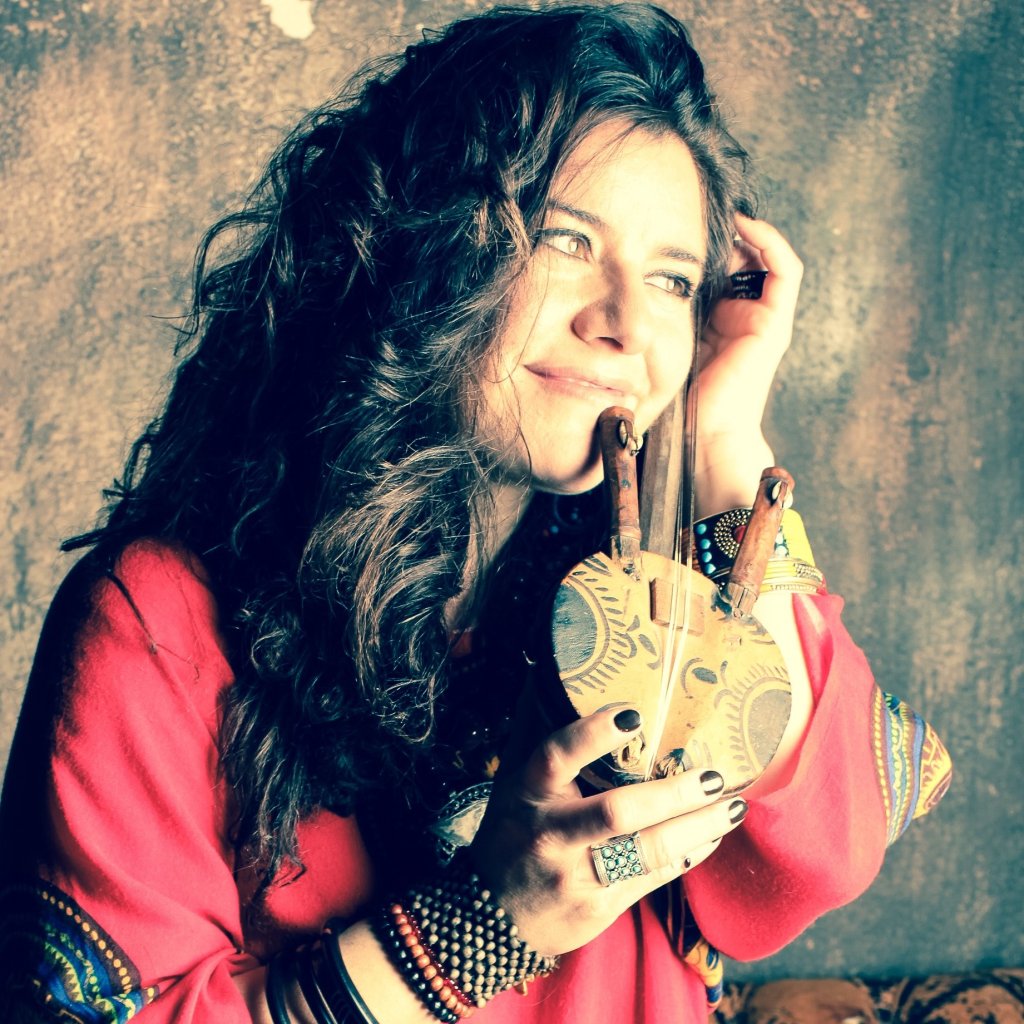
Founding Director of the Arab World Singing Master
Irene Shams
“My ultimate purpose is, on the one hand, to help singers explore their maximum technical, musical, artistic and creative potential and, on the other, to help build bridges between people and cultures, through the voice, singing and music and by opening minds and hearts to new horizons, which allow for greater closeness and human understanding.”
This master includes:
- +130 hours of live teaching sessions
- + 20 hours of recorded content
- Guidance and support
- Online community
- Course materials
2.300 €
2.300 €

